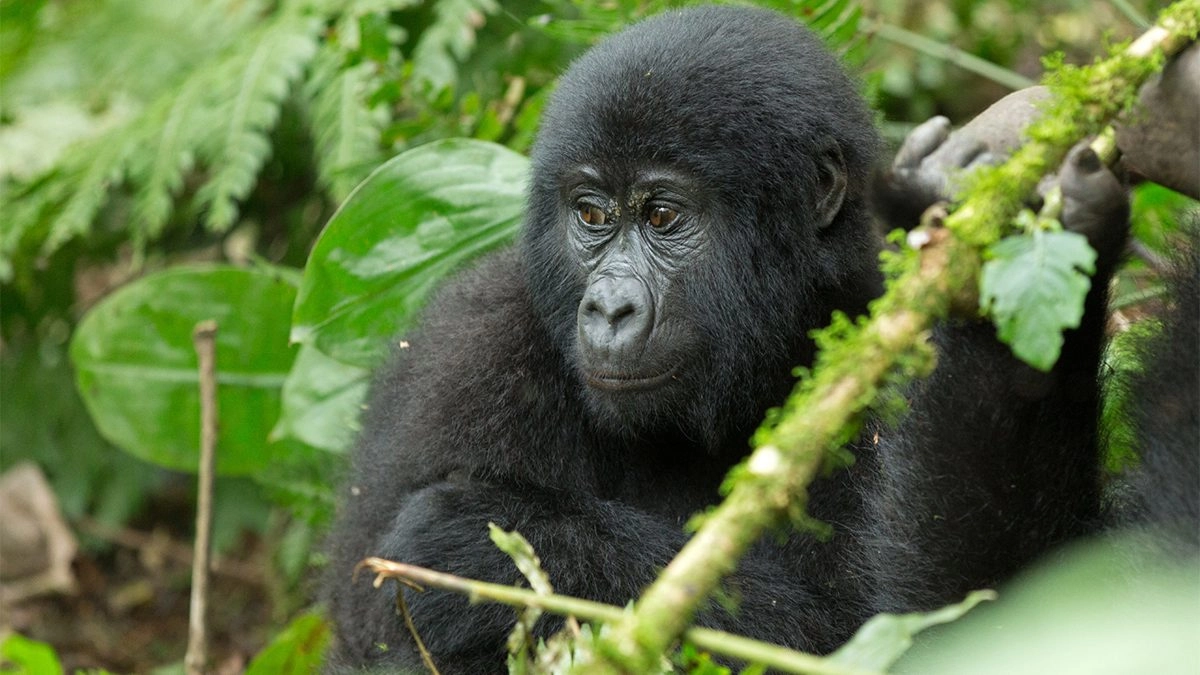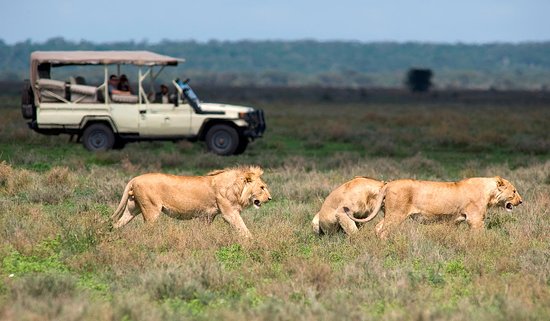
What to expect on an African safari.
What to expect on an African safari.
What to expect on an African safari : Whether you’re driving through the savanna in a 4×4 vehicle in search of the Big 5, floating above the Great Wildebeest Migration in a hot air balloon, or trekking through the dense rainforests of Uganda, Congo or Rwanda in search of gorillas, every day on safari in Africa is a magical safari experience. Every day is ripe with potential for fresh experiences and lifelong memories.
As a rule, safaris adhere to a familiar rhythm that combines thrilling game viewing with ample time to relax in between a dream vacation in anyone’s book though each day is unpredictable to some degree, depending on the time of year or location. The best times to go on a game drive are first thing in the morning and again in the late afternoon, when the animals tend to be the most active.
We’ve put together a guide that dives into what you can anticipate from a typical day on safari in Africa, assuming you’re staying at a traditional lodge or camps that offers game drives in a national park, private concession, or conservancy. The following are what to expect on An African safari.
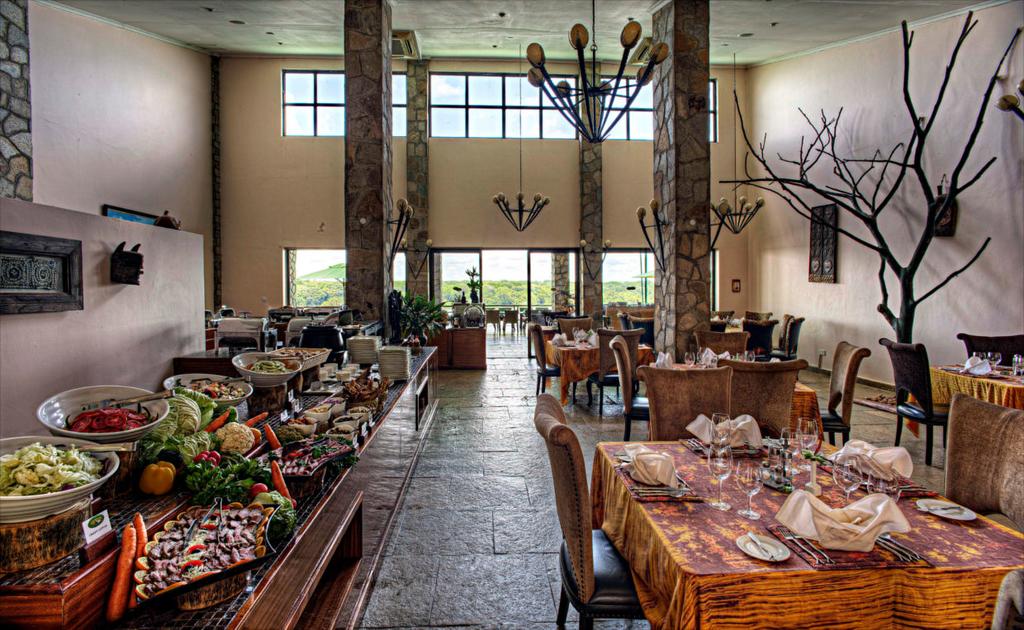
Time for a Wake-Up Call 5:30 am.
The crew will wake you up for the morning game drive at the crack of dawn. Even if you’re not a morning person, the knock on your door and the accompanying tray of tea, coffee, and cookies may be enough to get you out of bed and out the door. Typically, they will double-check the timing and your supper selection the night before.
Early mornings are often cool or chilly worldwide. The fact that you’ll be spending hours in a windowless safari vehicle doesn’t help, either. In order to keep warm, you need dress in several layers. If you don’t want to be late to work or school, laying out your clothing the night before will help you get ready quickly in the morning.
Those early morning game drives can seem like an odd time to see wildlife, but that’s because that’s when things really get going. In the early morning hours, many animals, especially predators, are active. The savanna may get exceedingly hot, making it impossible for the animals to do anything than seek out a cool, shady location. As a result, they actively seek out food while it is still cold.
6am – 9am: Morning Game Drive or Hot-Air Balloon Safari.
There’s something very special about being in the wilderness as the moon sets and the sun rises, even if that means setting out before first light. A terrific time to witness nocturnal hunters like lions and leopards resting up for the day or, in the case of lions, polishing off the last of their kill (leopards will stow theirs in a tree) is early in the morning, when the birds are singing beautifully and the sun has not yet risen.
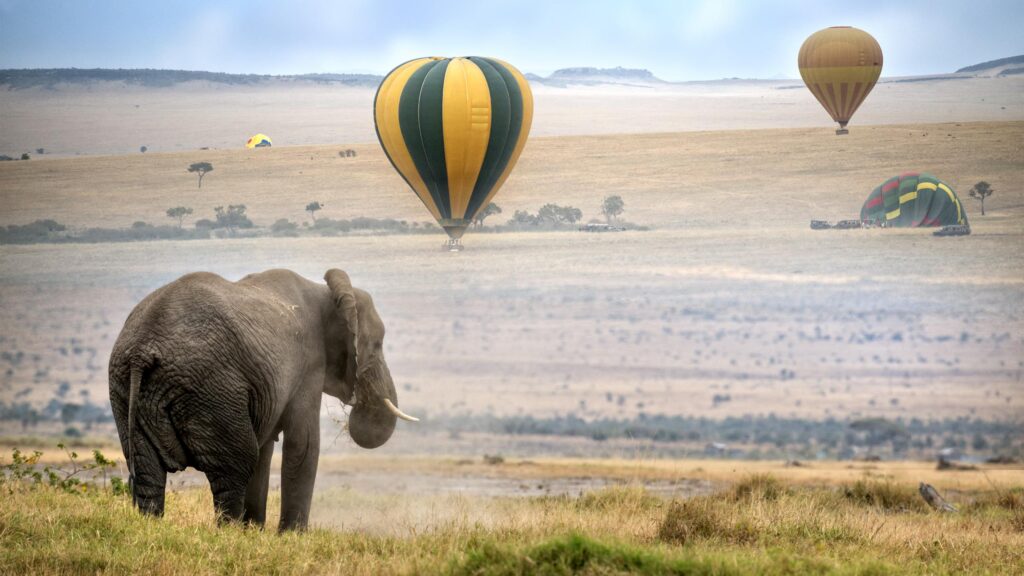
Elephants, gazelles, antelope, buffalo, and giraffes will all start congregating around watering holes as they begin to feel the effects of thirst. Pictures taken of them in the morning are enhanced by their reflections in the water. When it gets too hot and tiring to hunt down game, wild dogs will try to get their kills in while they still can.
Hot-air ballooning, which is most popular in Namibia, Kenya, and Tanzania, also requires an early start because winds are typically calmer in the morning. In contrast to national parks and reserves, private concessions and conservancies allow visitors to leave whenever they like.
9am – 11am: Return to Camp for Breakfast or Brunch.
As the day progresses, the temperature rises, making it uncomfortable to be outside (especially in South Africa, where game-drive cars typically don’t have roofs). After drinking, the animals will seek refuge in the shade, making them difficult to spot and shoot in the filtered light.
Depending on how late it is and whether or not you had a cooked bush meal, you will return to the lodge for lunch or brunch. The latter is a common treat after going hot air ballooning or on special occasions. After your hot air balloon adventure, why not celebrate with a bottle of champagne? After all, you are on vacation.
From 11 a.m. until 1 p.m., unwind time to read, nap, swim, walk or enjoy the Spa Couple indulging in traditional canvas bush baths at Cottars in Africa. Do whatever you choose after lunch. Guests have the option of relaxing at the lodge or exploring the surrounding area between scheduled safari activities. Relax by reading a book by the pool, getting a massage or pedicure, working out, or just plain sleeping. If you enjoy variety, have your Africa Safari Expert suggest a lodge with spa, gym, pool, library, media centre, Wi-Fi, guided walking paths, kids’ groups, and other amenities so you can plan your days accordingly. However, please be aware that not all camps provide these amenities.
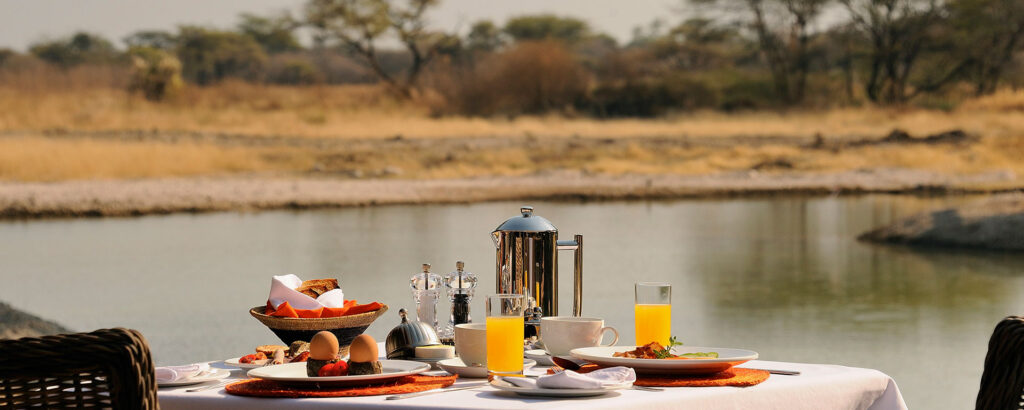
Inquire the night before about taking a guided nature walk at this time (if it is really hot, some guides prefer to do it instead of the morning drive) if you plan on being active during your stay. You’ll need to wear shoes with closed toes and long trousers if possible, and the tour’s focus will be on the fascinating details about Africa that are easy to miss from a moving vehicle, such as how dung beetles find their way, how termites construct their massive mounds, and how yellow weaver birds build their intricate nests.
You should have lunch around noon if you had breakfast at that time. Clients often report gaining a few pounds during their safari due of the wide variety of delicious foods they are offered. If you had a late brunch, many camps will skip lunch. Naps, swims, and photo editing are some of the best things to do after lunch. Many people who go on safaris spend some time learning about the lifestyles of the animals they observed that day.
3.30pm: High Tea.
High tea accoutrements include a three-tiered cake stand stacked with several pastries. Prepare for your afternoon game drive at around 3 p.m. by gathering your binoculars, filling your water bottle, placing your order for sundowners, and, if it’s winter, packing your scarf, gloves, and beanie; the temperature drops quickly after sundown.
The safari’s high tea custom dates back to the 19th century’s leisurely era. Snacks vary from chocolate cake and scones with cream to miniature savoury sandwiches and petit fours, all of which are served to you depending on which camp you’re in. You should eat something, even if you aren’t hungry, because dinner won’t be for a while, and you don’t want to go hungry on the game drive. Naturally, refreshments will also be provided at a lookout point during the evening game drive.
4pm – 7pm: Afternoon Game Drive.
Slowly, animals are emerging from their hiding places to drink at waterholes, and lone lions will begin contact calling to reunite with the pride before another night of hunting. Sundowners, or drinks and nibbles taken midway during the afternoon drive at a scenic site or lookout, are a key tradition on safaris. Have your camera ready, because the shorter the day, the earlier the sunset.
You can use a spotlight to search for nocturnal creatures as you drive back to camp after dark if you are in a private concession or conservancy. Those in national parks must leave before the gates close for the night, which is typically about sunset.
Keep in mind that mosquitoes are most active after dark, so it’s best to use an eco-friendly repellent and cover up. Since they are drawn to the colours black and blue, it’s better to avoid wearing those hues after dark (or packing them in the first place).
7.30pm: Dinner Time.
An African safari camp is the perfect setting for a romantic evening for a couple. Even if you don’t feel hungry, going outside in the fresh air has a way of making you hungry. Dinner is typically a multi-course meal served with wine and might take the form of a buffet, plated meal, or á la carte, depending on the type of lodge you book. If the weather is nice, dinner could be served on the boma, a typical open-air area with a cosy campfire. Before dinner, the staff will occasionally gather in the boma to sing, dance, and drum.
9pm: Turn in for Bedtime.
The typical safari day in Africa concludes at 9 p.m. Due to the early hour of the alarm, most individuals eat and then go to bed. Most camps will just let you relax in the calm of the African night (with the exception of the distant whoops of hyenas and chortles of hippos), while others will provide activities like stargazing through a telescope or lectures by researchers.
The fact that you don’t have to make many choices is often cited as a major perk of going on safari. Safari has a built-in rhythm that is both calming and, dare we say it, absolutely addicting, in contrast to city life where you have to make decisions about when to eat, where to eat, where to go, and what to do. Getting up early, eating well, getting some exercise, and getting a good night’s sleep is like fuel for the body and mind.
Frequently asked questions about a typical day on an African Safari.
- What is a Safari?
Safari, which comes from the Swahili word for “journey,” is an expedition into the African bush where you can safely and politely interact with wild animals and see their natural habitats.
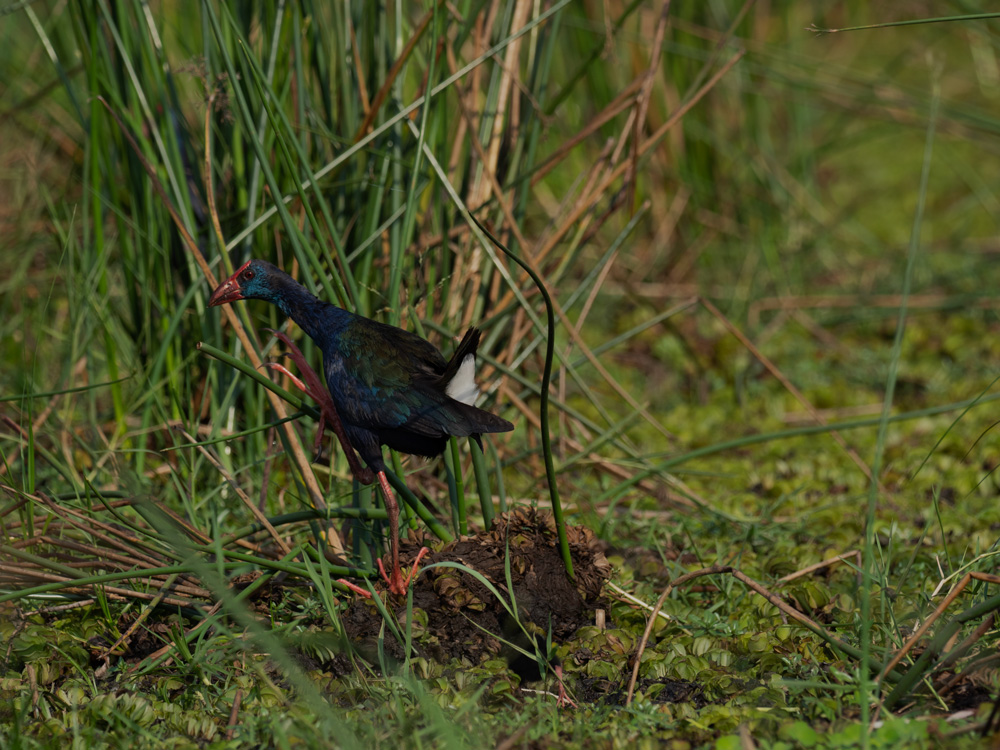
- What is a day on Safari Like?
The aforementioned handbook covers all the fundamentals of what to expect on a normal day on safari in Africa, from morning and afternoon safari drives all the way up to dinner on safari. Your Africa Safari Expert can provide you further details if you have any more inquiries.
- What can I expect to learn on a day on Safari?
The magic of safaris lies in the fact that you can learn something new every day. You can pick up new skills from traditional tribespeople in the neighboring communities, learn about the behaviors of each animal you see, and develop a deeper grasp of the complex world around you. However, to get a head start on your African safari education, why not try practicing some terms from our safari lexicon that covers the most regularly used jargon out in the bush?
- What do you do on a Safari?
There are many exciting things to do and see on safari besides going on game drives to look for your favorite animals in Africa. You can go gorilla trekking, on a walking safari, on a hike, on a bike tour, on a horseback safari, in a hot air balloon, on a boat tour, to a cultural event, to a spa, or to the gym, or any number of other things. Where you go and what you do on your own private safari are the deciding factors.
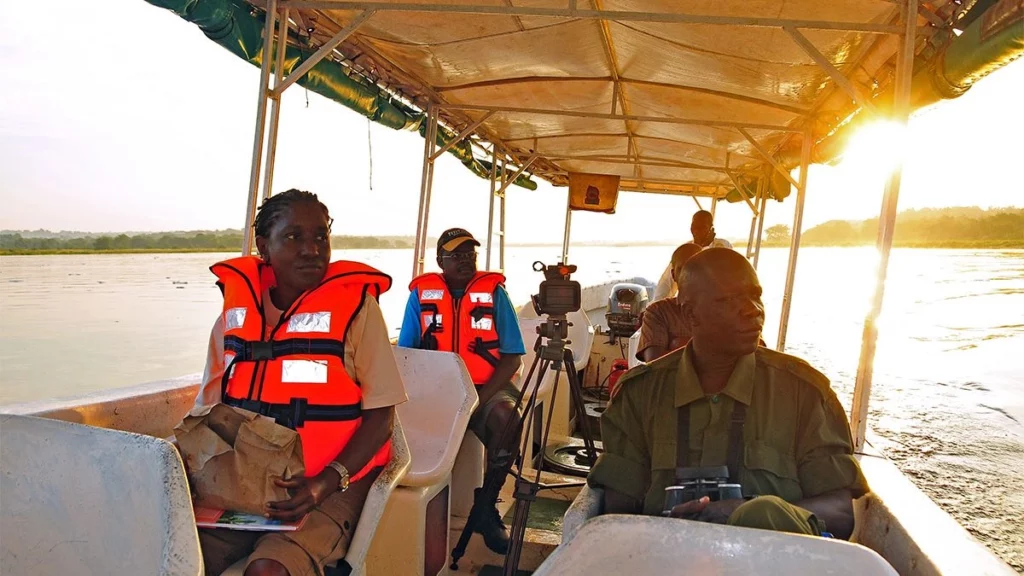
- Can you go to the toilet on Safari?
While on a game drive, the “bush toilet” is your sole option for relieving yourself. You may rest assured that your guide will both know where to find privacy and provide you with toilet paper if you need it. To that end, please use the facilities at the lodge before each game drive. Learn as much as you can about Africa before you go so that you can handle anything that comes your way.
- How many game drives does a typical day on safari include?
Camps and lodges often provide at least two game drives every day. The morning one is first, followed by the afternoon one. You can go on night drives in a private conservancy if you book a room at a lodge there, where you can use a spotlight to look for creatures that are active at night.
- What time of day is best for Safari?
The optimum times to go on a game drive in a national park or private conservancy are first thing in the morning or last thing at night. During these times, animals are most likely to be out and about, whether it’s to graze, drink from a waterhole, or, in the case of predators, hunt.

